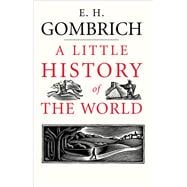
What is included with this book?
| PREFACE | XV | ||||
|
1 | (4) | |||
|
|||||
|
5 | (5) | |||
|
|||||
|
10 | (7) | |||
|
|||||
|
17 | (7) | |||
|
|||||
|
24 | (5) | |||
|
|||||
|
29 | (2) | |||
|
|||||
|
31 | (6) | |||
|
|||||
|
37 | (7) | |||
|
|||||
|
44 | (7) | |||
|
|||||
| 10 THE ENLIGHTENED ONE AND HIS LAND | 51 | (6) | |||
|
|||||
| 11 A GREAT TEACHER OF A GREAT PEOPLE | 57 | (5) | |||
|
|||||
| 12 THE GREATEST ADVENTURE OF ALL | 62 | (11) | |||
|
|||||
| 13 NEW WARS AND NEW WARRIORS | 73 | (7) | |||
|
|||||
| 14 AN ENEMY OF HISTORY | 80 | (3) | |||
|
|||||
| 15 RULERS OF THE WESTERN WORLD | 83 | (9) | |||
|
|||||
| 16 THE GOOD NEWS | 92 | (5) | |||
|
|||||
| 17 LIFE IN THE EMPIRE AND AT ITS FRONTIERS | 97 | (7) | |||
|
|||||
| 18 THE STORM | 104 | (6) | |||
|
|||||
| 19 THE STARRY NIGHT BEGINS | 110 | (5) | |||
|
|||||
| 20 THERE IS NO GOD BUT ALLAH, AND MUHAMMAD IS HIS PROPHET | 115 | (8) | |||
|
|||||
| 21 A CONQUEROR WHO KNOWS HOW TO RULE | 123 | (7) | |||
|
|||||
| 22 A STRUGGLE TO BECOME LORD OF CHRISTENDOM | 130 | (7) | |||
|
|||||
| 23 CHIVALROUS KNIGHTS | 137 | (7) | |||
|
|||||
| 24 EMPERORS IN THE AGE OF CHIVALRY | 144 | (12) | |||
|
|||||
| 25 CITIES AND CITIZENS | 156 | (7) | |||
|
|||||
| 26 A NEW AGE | 163 | (9) | |||
|
|||||
| 27 A NEW WORLD | 172 | (8) | |||
|
|||||
| 28 A NEW FAITH | 180 | (7) | |||
|
|||||
| 29 THE CHURCH AT WAR | 187 | (6) | |||
|
|||||
| 30 TERRIBLE TIMES | 193 | (7) | |||
|
|||||
| 31 AN UNLUCKY KING AND A LUCKY KING | 200 | (6) | |||
|
|||||
| 32 MEANWHILE, LOOKING EASTWARDS... | 206 | (7) | |||
|
|||||
| 33 A TRULY NEW AGE | 213 | (7) | |||
|
|||||
| 34 A VERY VIOLENT REVOLUTION | 220 | (7) | |||
|
|||||
| 35 THE LAST CONQUEROR | 227 | (13) | |||
|
|||||
| 36 MEN AND MACHINES | 240 | (8) | |||
|
|||||
| 37 ACROSS THE SEAS | 248 | (7) | |||
|
|||||
| 38 TWO NEW STATES IN EUROPE | 255 | (9) | |||
|
|||||
| 39 DIVIDING UP THE WORLD | 264 | (9) | |||
|
|||||
| 40 THE SMALL PART OF THE HISTORY OF THE WORLD WHICH I HAVE LIVED THROUGH MYSELF: LOOKING BACK | 273 | ||||
|
The New copy of this book will include any supplemental materials advertised. Please check the title of the book to determine if it should include any access cards, study guides, lab manuals, CDs, etc.
The Used, Rental and eBook copies of this book are not guaranteed to include any supplemental materials. Typically, only the book itself is included. This is true even if the title states it includes any access cards, study guides, lab manuals, CDs, etc.